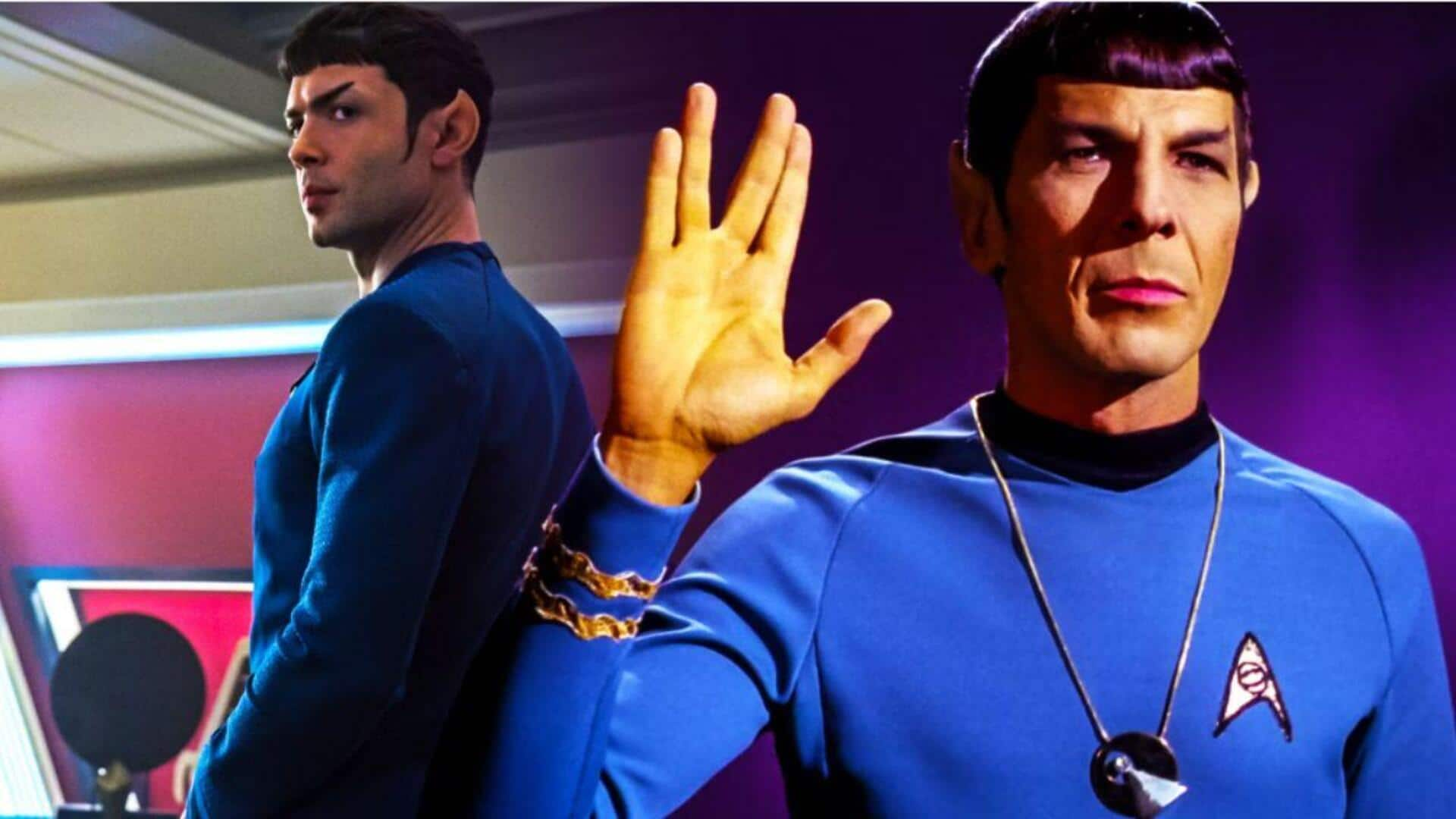
The fascinating evolution of Spock in 'Star Trek' movies
What's the story
Who doesn't love Spock, the legendary character from Star Trek? Over the decades, Spock has changed tremendously in US cinema. From being a half-human, half-Vulcan science officer on the USS Enterprise to what he is today, Spock has evolved with time, keeping up with changing values and technology. Here's how Spock's character has changed in movies.
Origins
'Star Trek: The Original Series' introduction
In Star Trek: The Original Series, Leonard Nimoy's Spock became the logical, emotionless Vulcan we all grew to love. As the bridge between human emotion and Vulcan rationality, his character provided a unique commentary on the nature of being human. This Spock turned into an emblematic figure for fans, a representation of the eternal battle of logic and emotion, forever etched in the show's lore.
Film adaptations
Reimagining in 'Star Trek' films
The move to movies beginning in 1979 added so much depth to Spock's character. He became more than a science officer; he became a leader, a strategic asset aboard the USS Enterprise. The films explored the intricacies of his mixed heritage, the delicate balance of his Vulcan logic and human emotion. It made Spock even more relatable, even more layered.
New generations
Modern interpretations in reboots
With the reboot of Star Trek films starting in 2009, actor Zachary Quinto assumed the role of Spock. This modern take retained essential features, but added more emotional depth and complexity. The reboots sought to attract both long-time fans and new audiences by balancing nostalgia with modern storytelling techniques.
Legacy
Cultural impact over time
Spock's evolution in US cinema reflects wider cultural changes around diversity and representation. As one of television's first mixed-race characters, he played a significant role in paving the way for more inclusive representations in media. His enduring popularity underscores how characters can evolve while remaining true to their core across eras, connecting with audiences of different generations and mirroring evolving values of society.